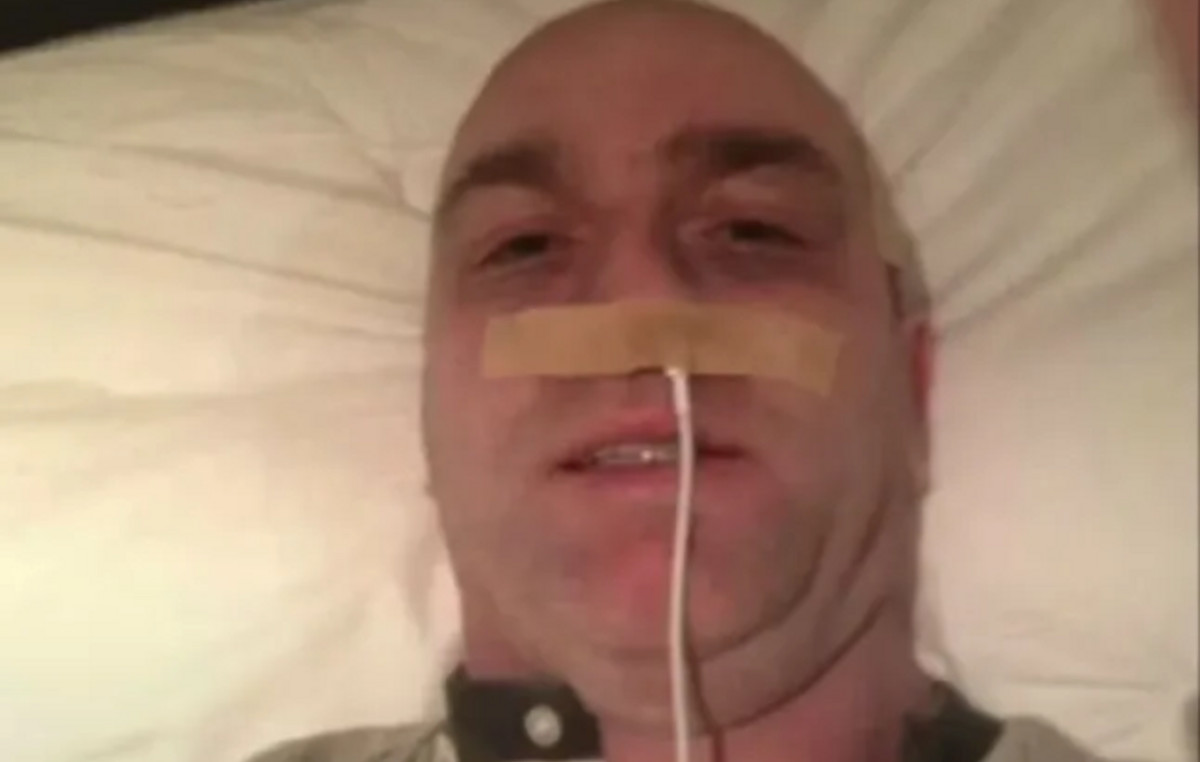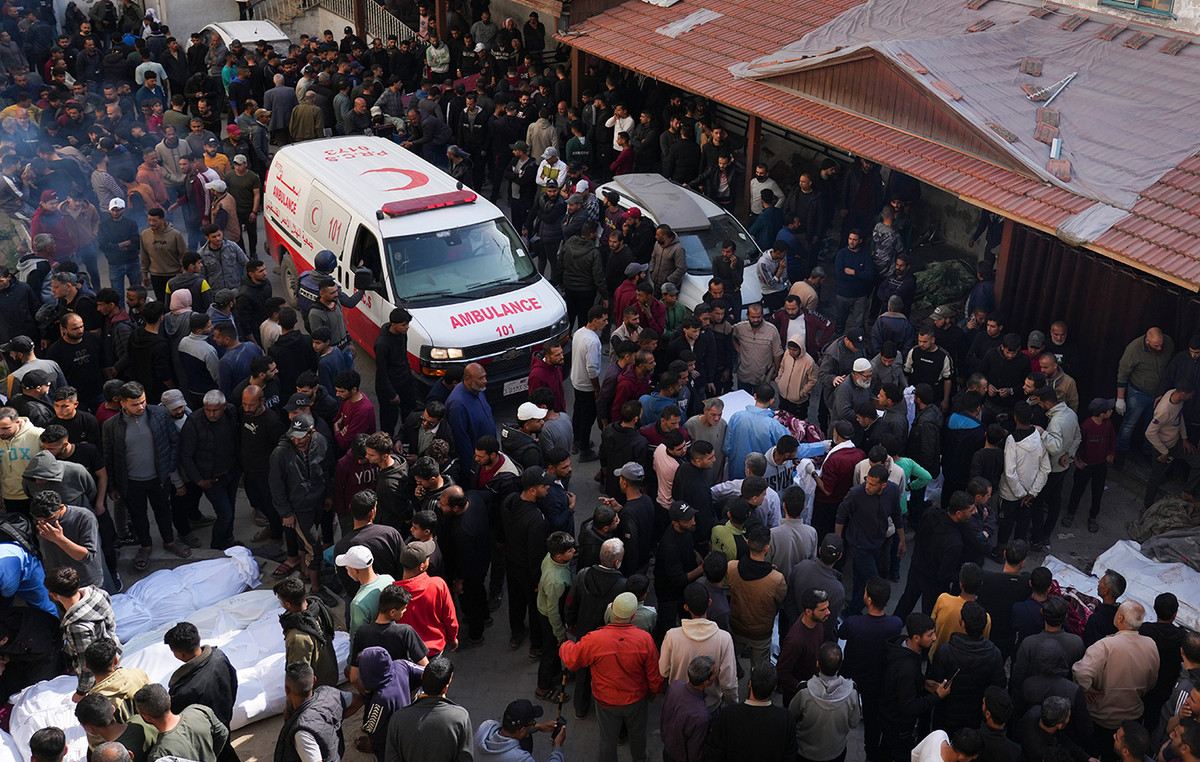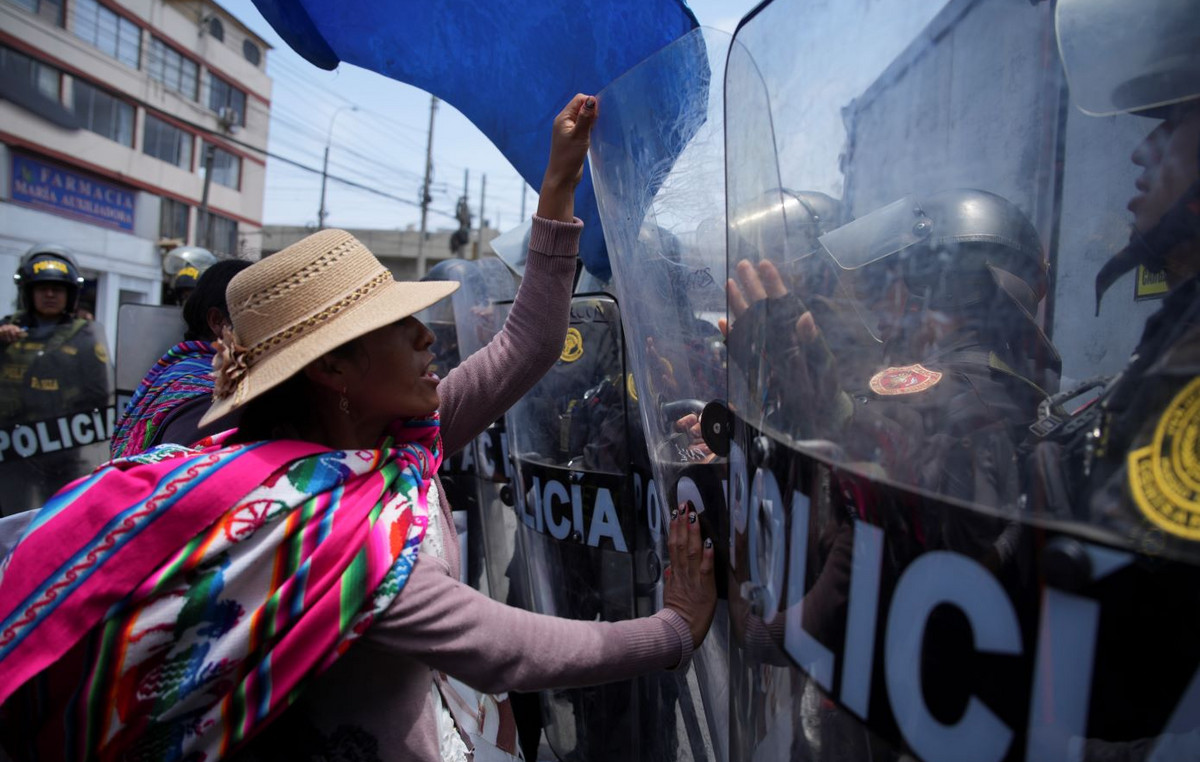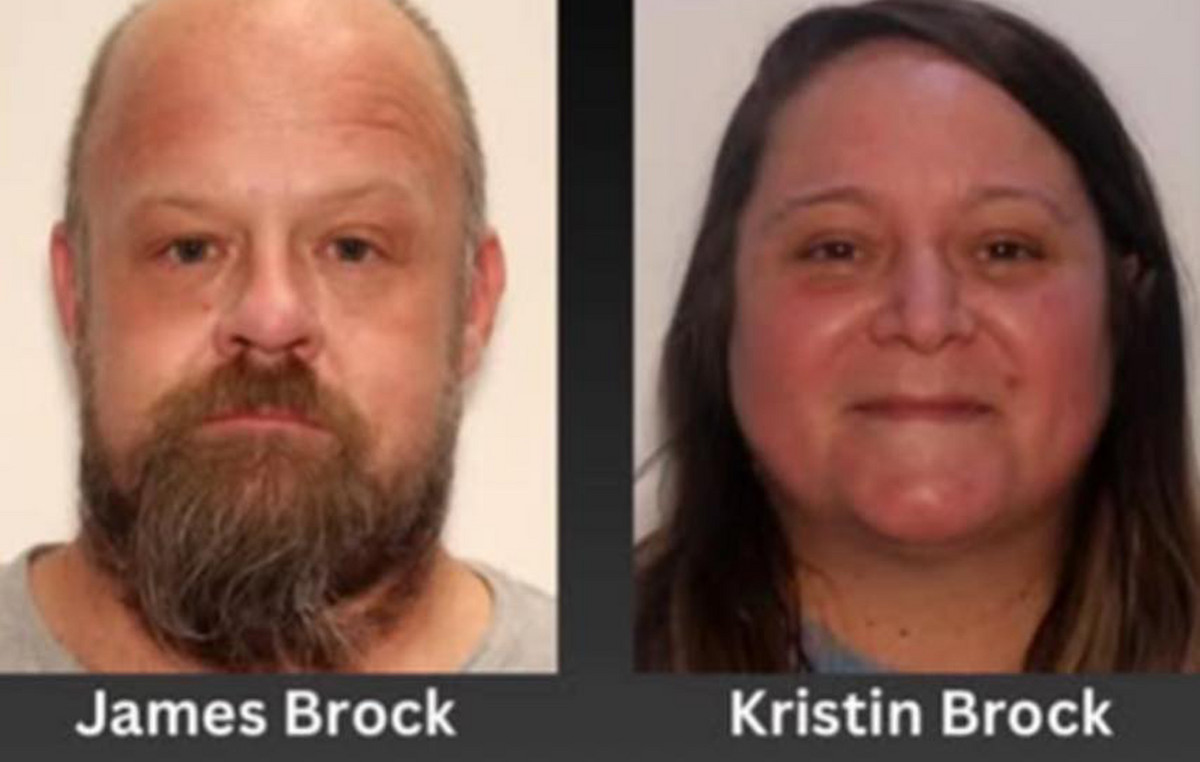This article was published in issue 48 of Vanity Fair of 20 November 2020
Maybe there isn’t even a bruise, not even a scratch, or a redness. But they have suffered a lot of damage. And they hurt so much that the pain and anguish don’t go away: that’s why they are so depressed, that they have zero self-esteem, that they suffer from anxiety, that they are unable to socialize with their schoolmates. Because they have seen their mothers beaten, insulted, raped.
Because they couldn’t do anything in front of a abusive and aggressive father. They call it “assisted violence”: it is what children suffer when they are spectators of physical, verbal, psychological, sexual and economic abuse of reference figures. Usually the mother. “Unfortunately, in these pandemic times, cases have increased,” he explains Luca Lo Presti (pictured), which he created Pangea Onlus, the Foundation that since 2002 has been involved in defending women’s rights in the world. “We are committed to setting up reign, a large network of people and associations whose objective is the application of the Istanbul Convention, the first legally binding international instrument aimed at establishing a regulatory framework for the protection of women against any form of violence. But many women are also mothers, more than half: it was impossible not to think of their children, who, when they are not subjected to direct violence, are always pulled into the middle, used as a weapon to destroy the adversary. This is how our “Little Guests” project started».
How are these children?
«They tend to have great difficulty in relating to their mother, they are unable to develop an emotional relationship with anyone because they have never understood or experienced what love is. They have always lived within a conflict, where whatever they did, they were wrong. We’re following a 17-year-old boy, completely emotionally confused, a lot who for a long time stopped talking, fell into a selective mutism that was not easy to unlock. Then he explained to us. If he sided with the father – hoping that in this way the father, feeling he had an ally, would be more relaxed with the mother – he would obtain the opposite effect: the father made himself strong in this alliance and hit even harder. If he sided with his mother, then his father beat both of them.’
What do you do with the kids in your centres?
«Mostly psychotherapy and very simple activities, to teach the relationship. Through role-playing, reading sessions and pet therapy let us create camps of peace where there have always been only wars. Invisible but destructive wars. These children, or teenagers, have never experienced moments of intimacy, for them there have only been moments of fear: “Be quiet, otherwise dad will give it to you”. Here, we try to recover the possibility of a different relationship. We try to make therapeutic plans that last long enough to see a minimum of serenity in the eyes of these children. Usually this happens no earlier than a year of constant meetings.
How many cases do you follow?
“One hundred. We are, alas, very tied to the cost of services: the number of cases depends on how much money we have available. The operators, psychologists and educators, are all paid professionals, but the service we offer is free. However, our rule is that of continuity: if we take charge of a boy it means that we have the strength to go all the way».
How does the connection with the children take place?
“Usually we ask women who ask us for help about the family situation. Unfortunately, it often happens that parents do not even notice the damage created in the minds of children. If there is physical violence, it is easier for the mother to be protective of her child, if only for an instinctive matter. But if it is “only” verbal or psychological violence, then it is more difficult there: it is as if there is no perception that those sentences, those words, those dynamics can undermine the health of the children. It is not uncommon for the mother to justify the father: “Dad does this because he is tired”. But for children to see their mothers humiliated is pain mixed with anger. These kids are emotionally devastated. And, unfortunately, it also happens that the father insults the mother, and then rapes her daughter ».
Do you only follow minors?
«Yes, even if even adults would need a lot of help. A criminal lawyer who works with us told me that she often finds herself defending kids who end up in prison because they beat up her mother. They blame her for not getting rid of that abusive father. Meanwhile, however, they have internalized that violence and are full of resentment. A relationship of hate and love is born that becomes difficult to manage ».
When did you start with the «Little Guests» project?
«Several years ago: we saw the first child victim of witnessing violence in 2008. Since then we have dedicated ourselves to this problem, so much so that we have written a European protocol in coordination with associations in Spain, Hungary and Romania. Unfortunately, witnessing violence, even if classified as child abuse, is still greatly underestimated, both from the point of view of social recognition and from a legal point of view: specific laws and adequate policies are needed”.
Does it always end up with a complaint?
«No, not all women report, on the contrary. They ask to be secured, to be helped, but when they do manage to get out they prefer to have nothing to do with the guy who beat them up. They want to make a point. We assist them with a top-level legal team and it has happened several times that Pangea has filed a civil action. The important thing is that they know they are not alone.”
Why did you, as a man, start dedicating yourself so much to women’s rights?
“It’s not actually that I’ve decided to dedicate myself to women, it’s that there is a huge violation of rights affecting a part of mankind, and this is deeply unfair. I’ve seen it happen all over the world, regardless of education level, economic status, religion, social class or ethnicity. When Pangea was born, I asked myself what was a theme that touched the whole world, what violation was so transversal that, if we had faced it, we would have solved a central problem for the entire planet. Here, it was the women, with their rights violated, simply because they are part of a genre. And this is why, instead of feminicide, I would use – allow me the provocation – the word genocide».
Source: Vanity Fair
I’m Susan Karen, a professional writer and editor at World Stock Market. I specialize in Entertainment news, writing stories that keep readers informed on all the latest developments in the industry. With over five years of experience in creating engaging content and copywriting for various media outlets, I have grown to become an invaluable asset to any team.






